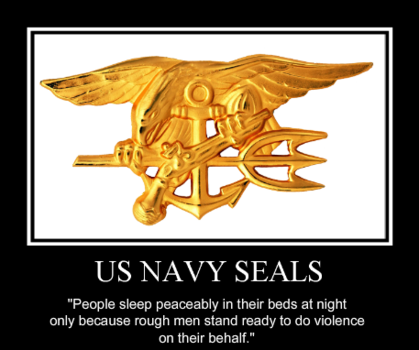From the Halls of Montezuma
To the shores of Tripoli;
We fight our country's battles
In the air, on land, and sea;
First to fight for right and freedom
And to keep our honor clean;
We are proud to claim the title
Of United States Marine.
To the shores of Tripoli
The line "To the shores of Tripoli" refers to the First Barbary War (1801-1805), and specifically the Battle of Derna in 1805. The conflict involved war with the Barbary States (the Ottoman provinces of Tripoli, Algiers, and Tunis). The run up to the war and the war involved many names you have heard before in this blog (e.g. Bainbridge, Decatur, and others). The return of the bodies of the precursors to today's Navy SEALs has been an ongoing challenge in working with the governments of Tripoli.
Tripoli (Arabic: طرابلس Ṭarābulus) is the capital city and the largest city of Libya. As of 2011, the Tripoli metropolitan area (district area) had a population of 2.2 million people. The city is located in the northwestern part of Libya on the edge of the desert, on a point of rocky land projecting into the Mediterranean and forming a bay.
Tripoli was founded in the 7th century BC by the Phoenicians, who named it Oea.
Tripoli is also known as Tripoli-of-the-West (Arabic: طرابلس الغرب Ṭarābulus al-Gharb), to distinguish it from its older Phoenician sister city Tripoli, Lebanon known in Arabic as Ṭarābulus al-Sham (طرابلس الشام) meaning "Levantine Tripoli." It is affectionately called The Mermaid of the Mediterranean (Arabic: عروسة البحر ʼarūsat el-baḥr; lit: "bride of the sea"), describing its turquoise waters and its whitewashed buildings. Tripoli is a Greek name that means "Three Cities," introduced in Western European languages through the Italian Tripoli. In Arabic: طرابلس it is called Ṭarābulus, Libyan Arabic: Ṭrābləs, Berber: Trables, from Ancient Greek: Τρίπολις Trípolis).
Around the beginning of the 3rd century AD, it became known as the Regio Tripolitana, meaning "region of the three cities," namely Oea (i.e., modern Tripoli), Sabratha and Leptis Magna.
Tripoli was founded in the 7th century BC by the Phoenicians, who named it Oea.
Tripoli is also known as Tripoli-of-the-West (Arabic: طرابلس الغرب Ṭarābulus al-Gharb), to distinguish it from its older Phoenician sister city Tripoli, Lebanon known in Arabic as Ṭarābulus al-Sham (طرابلس الشام) meaning "Levantine Tripoli." It is affectionately called The Mermaid of the Mediterranean (Arabic: عروسة البحر ʼarūsat el-baḥr; lit: "bride of the sea"), describing its turquoise waters and its whitewashed buildings. Tripoli is a Greek name that means "Three Cities," introduced in Western European languages through the Italian Tripoli. In Arabic: طرابلس it is called Ṭarābulus, Libyan Arabic: Ṭrābləs, Berber: Trables, from Ancient Greek: Τρίπολις Trípolis).
Around the beginning of the 3rd century AD, it became known as the Regio Tripolitana, meaning "region of the three cities," namely Oea (i.e., modern Tripoli), Sabratha and Leptis Magna.
Tridents and Tripoli have been associated for centuries. The above Medal of Louis XV, notes the bombing of Tripoli by Duvivier, 1728 Paris. The reverse shows Nepture with his Trident, threatening Tripoli.
The British Naval General Service Medal, 1848, was given to veterans of the naval battles along the Barbary Coast during the French Revolutionary War and Napoleonic Wars. The reserve shown is Britannia with a trident seated sideways on a seahorse.
Watery creatures and Tripoli go fin-in-fin, so to speak.
The name game in Libya even got involved in the civil war there.
The Battle of Tripoli (Arabic: معركة طرابلس maʻarakat Ṭarābulis) - in August 2011 - was a military confrontation in Tripoli, Libya, between loyalists of Muammar Gaddafi, the longtime leader of Libya, and the National Transitional Council, which was attempting to overthrow Gaddafi and take control of the capital. The battle began on 20 August 2011, six months after the Libyan civil war started, with an uprising within the city; rebel forces outside the city planned an offensive to link up with elements within Tripoli, and eventually take control of the nation's capital.
The rebels codenamed the assault "Operation Mermaid Dawn" (Arabic: عملية فجر عروسة البحر ʻamaliyyat fajr ʻarūsat el-baḥr). As noted above, Tripoli's nickname is "The Mermaid" (Arabic: عروسة البحر ʻarūsat el-baḥr) (literally "bride of the sea").
The rebels codenamed the assault "Operation Mermaid Dawn" (Arabic: عملية فجر عروسة البحر ʻamaliyyat fajr ʻarūsat el-baḥr). As noted above, Tripoli's nickname is "The Mermaid" (Arabic: عروسة البحر ʻarūsat el-baḥr) (literally "bride of the sea").
Mermaid! Dawn!
On the evening of September 11, 2012, Islamic militants attacked the American diplomatic compound in Benghazi, Libya (560 miles East of Tripoli), killing four Americans in the attack: Ambassador Stevens, Information Officer Sean Smith, and two CIA operatives, Glen Doherty and Tyrone Woods, both former Navy SEALs.
Libya has remained unstable for some time.
Official Seal of the Navy Seals, with trident.








1 comment:
Much of the iconography recalls the worship of 'sea god' Dagon, up the eastern Mediterranean coast. As with Mumbai and the Triple Underpass at Dea-ley, Tri-poli also suggests the triune-goddess of kore/mater/crone. Thus 'mermaid' signatures.
Originally, only a single continent existed on Earth. After the shakeup, distinct continents formed, with distinct characters. Tripoli is located at the indentation, or wound, anciently made in the skull of Africa, torn away to become instead a part of Europa. So proceeding occult associations and events involving Tripoli are inevitable. Cheers.
Post a Comment